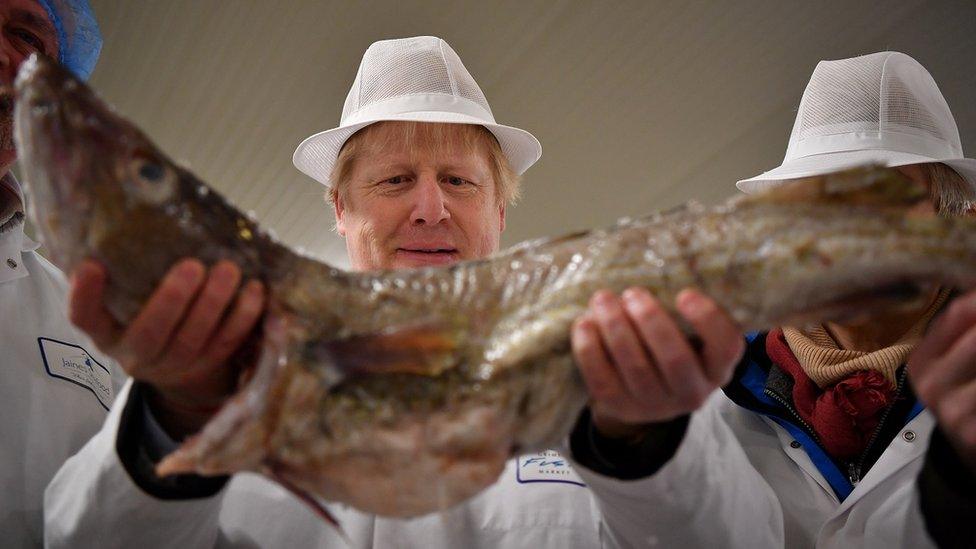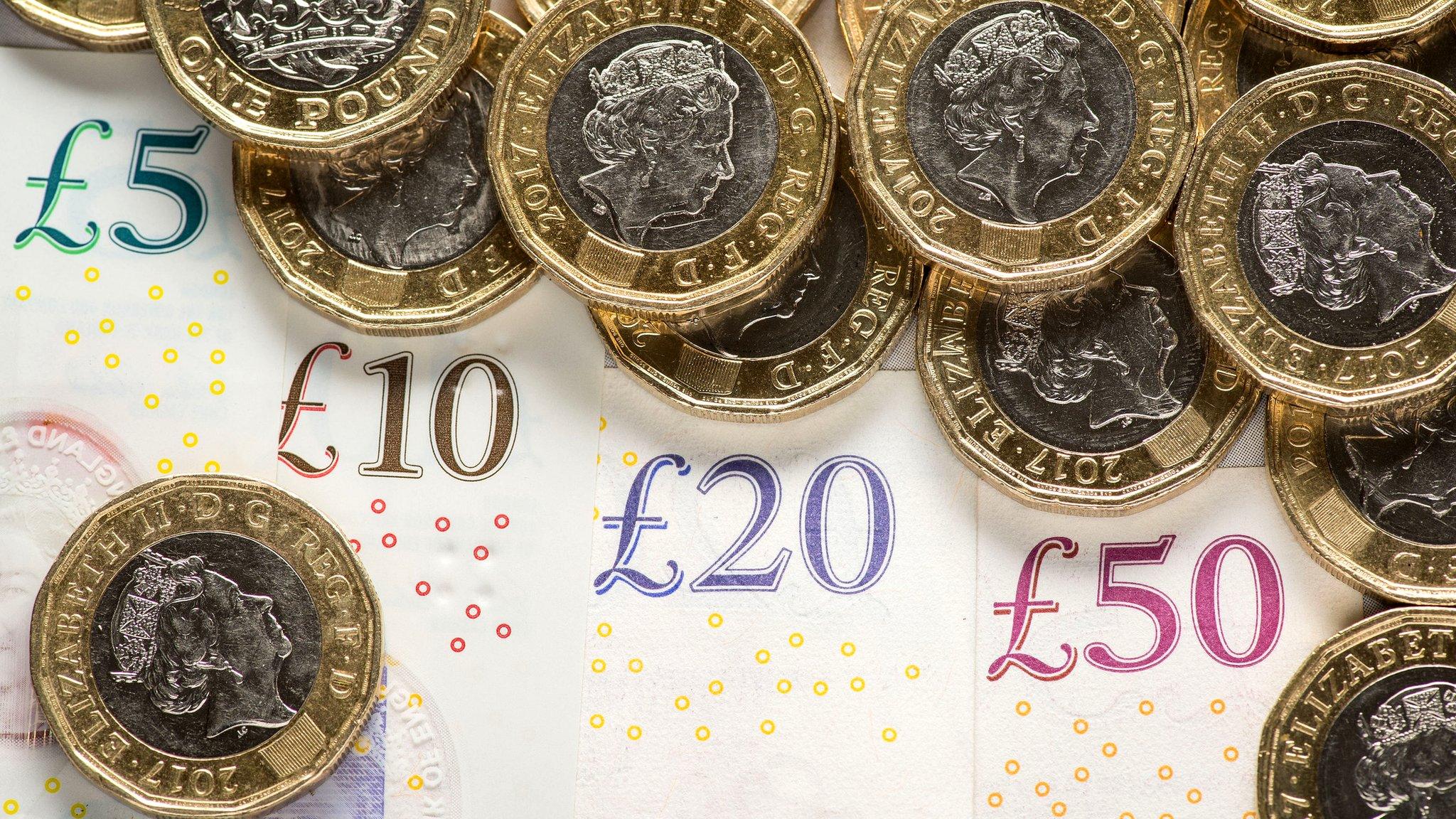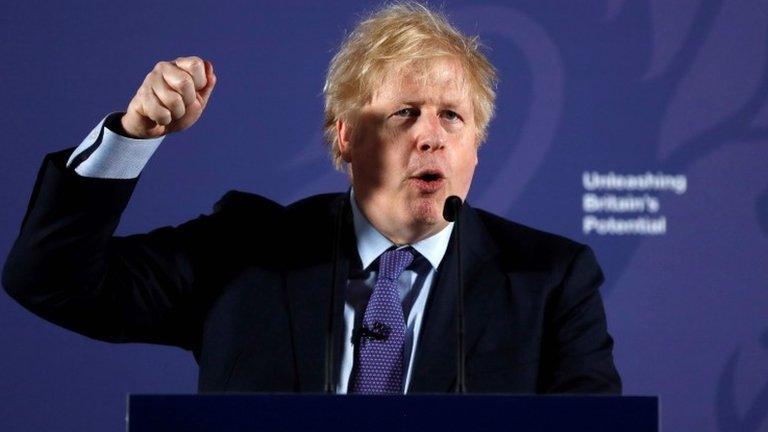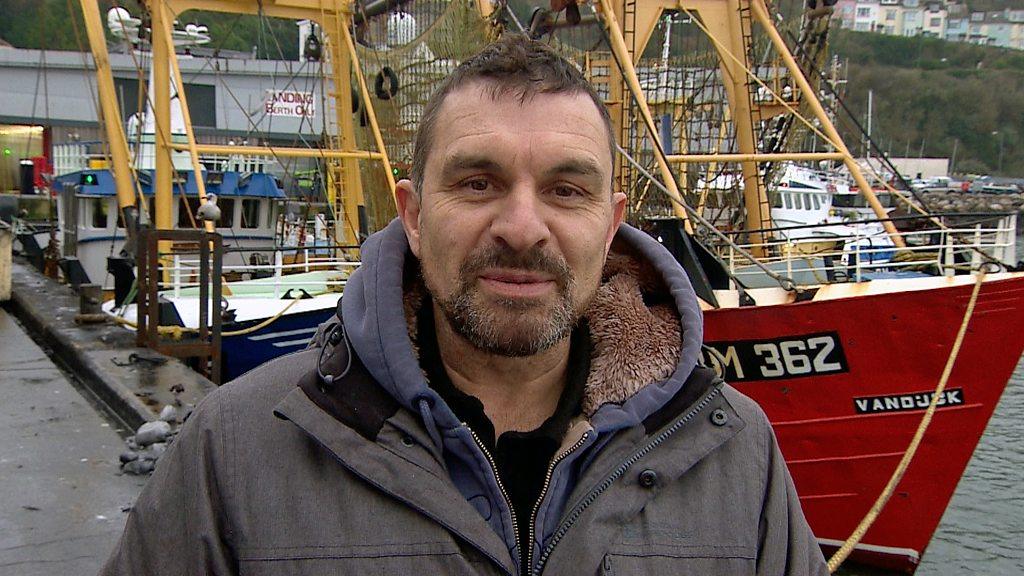Chicken or fish? UK and EU clash over trade menu
- Published
- comments

From today's menu which fight would you prefer? The chicken or the fish? Boris Johnson's speech today confirmed what sources in Defra have been telling me for some time. The UK will take US chicken before sacrificing UK fish.
While saying that the UK would not accept any diminution of food standards, in a speech in which he bemoaned the number of American "bashers" he tellingly added that "science would be the guide" in setting standards.
That is precisely the language US trade officials have used when discussing their use of anti-bacterial treatment of chicken and their approach to US-UK trade talks.
Most scientists say there is nothing inherently wrong with chlorinated chicken - as Boris Johnson quipped, Americans appear well nourished and most people don't come back from the US complaining.
The objection is that chlorination is deemed necessary/desirable to combat the greater risk of contamination due to overcrowding and longer transport distances. The PM said he would encourage the US to adopt higher animal welfare standards.
There was a much harder line on fish. More fish for UK vessels from UK waters is a non-negotiable red line, according to Defra sources. British fishing grounds were "first and foremost for British boats", said Mr Johnson.
That means less of the catch for French and Dutch boats. The political declaration hopes that a deal on fisheries can be concluded by the end of June, so this will be an early flashpoint in negotiations.
'You have to be optimistic as a fisherman'
As Boris Johnson and Michel Barnier dug their trenches today, Mr Barnier marked out his territory pretty much as advertised in the political declaration - the bit of the Brexit divorce bill which dealt with future arrangements.
Boris Johnson moved quite a long way from what the UK originally signed up to. Article 17 of the political declaration said the EU and UK signed up to "ensuring a level playing field for open and fair competition". That clearly means something different to Boris Johnson than it does to Mr Barnier.
For Mr Barnier it means adopting the same rules and regulations on state aid, social and employment standards, environment and tax matters. Boris Johnson binned that idea today - emphatically saying the idea that the UK should be expected to follow EU rules was as unacceptable to the UK as the EU would find it having to adhere to UK rules.
The UK would like to adopt a Canada-style approach - where tariffs on goods are abolished and yet both party remains largely able to set their own standards and pursue their own trade policies.
The EU has made it pretty clear that what is appropriate for Canada (thousands of miles away, with quite a small trading relationship with EU) is not appropriate for a country that is on the EU's doorstep doing hundreds of billions' worth of two-way trade every year.
Oh well, never mind, says Mr Johnson - we'll do an "Australia-type deal" with the EU. To be clear - Australia is also a long way away and does not even have a trade deal with the EU. It is essentially a no-deal relationship with a few extra agreements on the side.
Businesses have reacted with cautious pessimism to these opening exchanges - meaning they don't like the apparent distance between the trenches dug today, but hope they are just opening positions.
- Published3 February 2020

- Published3 February 2020

- Published3 February 2020
- Published31 January 2020

